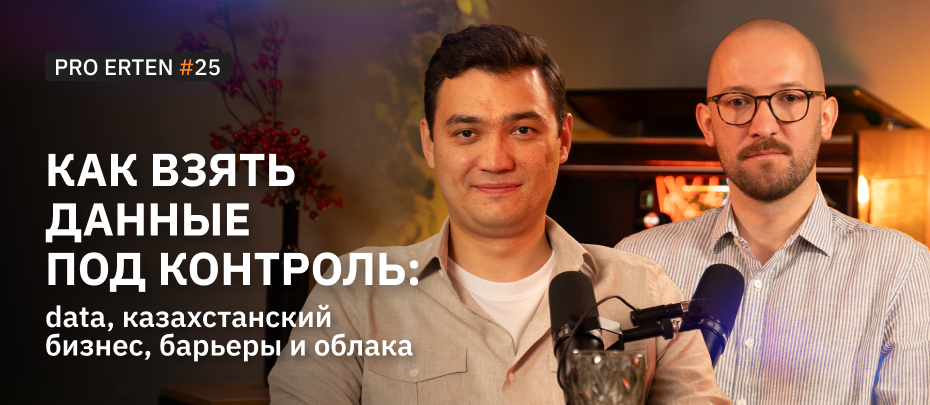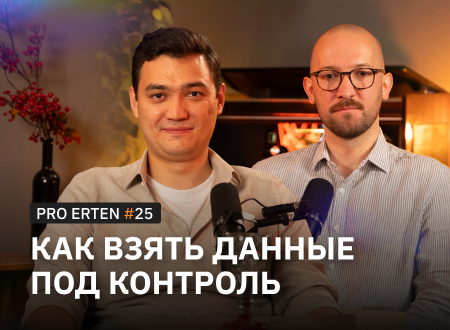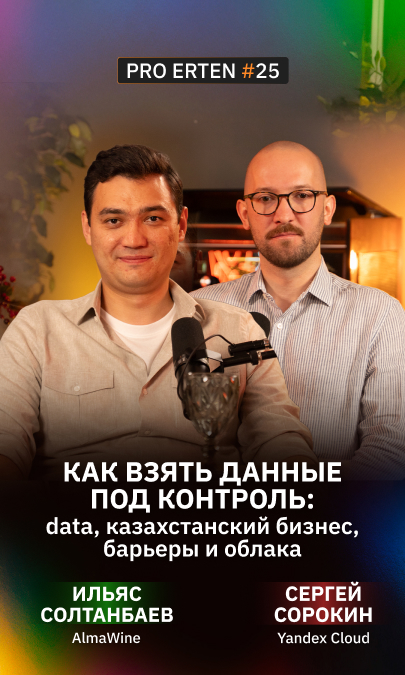In Kazakhstan, more than 600,000 families are raising children with developmental challenges. While these families receive financial and medical assistance from the government, many parents struggle to find comprehensive, expert-backed, and scientifically validated information on critical issues. From identifying developmental differences to navigating medical care, education, and preparing children for adulthood, Ozim Platform offers a single solution that addresses these concerns and more.
Asem Tazhiyeva, founder of Ozim Platform and resident of Astana Hub, shared the journey behind one of Kazakhstan’s pioneering social startups and how it is making a tangible difference in the lives of families with special needs in an interview with Er10.media.
Follow Kazakhstan’s Startup Movement in the "100 Startup Stories of Kazakhstan", a collaborative project by ER10 Media and Astana Hub. This initiative highlights the most innovative Kazakh startups, showcasing projects that stand out for their creativity and impact. Among the heroes are Astana Hub residents, as well as creators of other innovative technological products and services. The content is available in Kazakh, Russian and English.
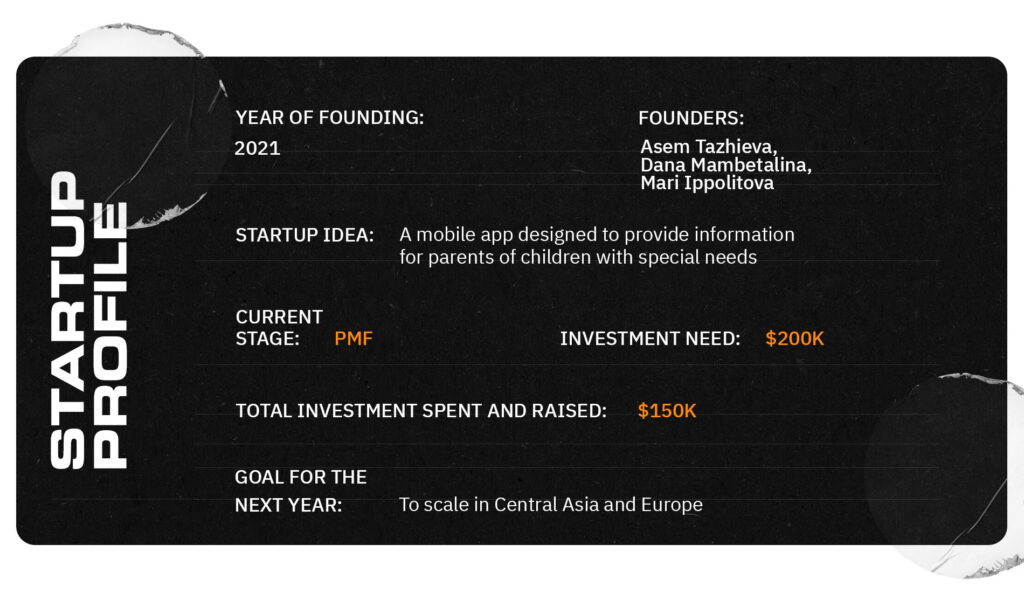
Empowering Families with Special Needs Children
– How did the idea for Ozim Platform come to life? Was it driven by personal experience, intuition, or market research?
– The creation of Ozim Platform stems from a combination of personal experience and professional insight. While studying at Nazarbayev University, I was deeply involved in projects centered around inclusion. Later, when my premature daughter was born, I found myself facing many of the same challenges I had previously studied. With a background in IT, I assumed there would be digital resources available to help parents in similar situations. To my surprise, no such platform existed.
That realization inspired me to bridge this gap. I brought together a team of passionate individuals, and we approached the issue from a research-driven perspective. We conducted interviews with focus groups across Kazakhstan to assess the scope of the problem and the demand for such a platform. It became clear that this was a critical issue not only in Kazakhstan but in neighboring countries as well.
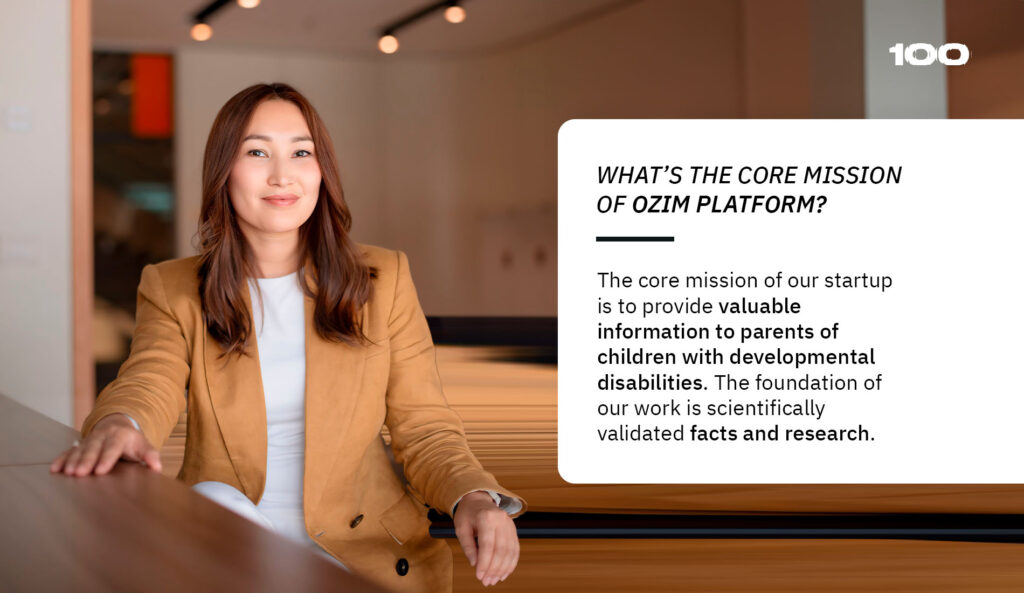
– What’s the core mission of Ozim Platform? How are you supporting families with special needs children?
– The core mission of our startup is to provide valuable information to parents of children with developmental disabilities. The foundation of our work is scientifically validated facts and research. It was shocking for us to discover how often families with special needs children are targeted by fraudsters and charlatans who promise miraculous cures while profiting off the suffering and challenges of others.
Our platform focuses on modern, evidence-based methods for child development and rehabilitation, while also explaining why the so-called "magic pill" or the latest self-proclaimed miracle worker won’t deliver. The key to caring for a special needs child is arming yourself with reliable information and following the advice of experienced, qualified medical professionals.
To fund the launch of the startup, we applied to the Social Development Fund at Nazarbayev University for a grant—and we won. From the beginning, I wanted the information to be as accessible as possible, available right at parents' fingertips. This led to the idea of creating a mobile app. Through our surveys, we found that while not all families have computers, smartphones are nearly universal.
Another key feature of our app is that all information is presented in a highly accessible and easy-to-understand format, available in both Kazakh and Russian. Our researchers take complex scientific data and distill it into simple, clear language for everyone to understand.
– How is the information presented in the app?
– The core content is provided through articles and videos. We offer videos in three lengths: full videos of 3-5 minutes, shorter ones of 1.5 minutes, and quick 30-second clips. We settled on this format after gathering feedback from our users.
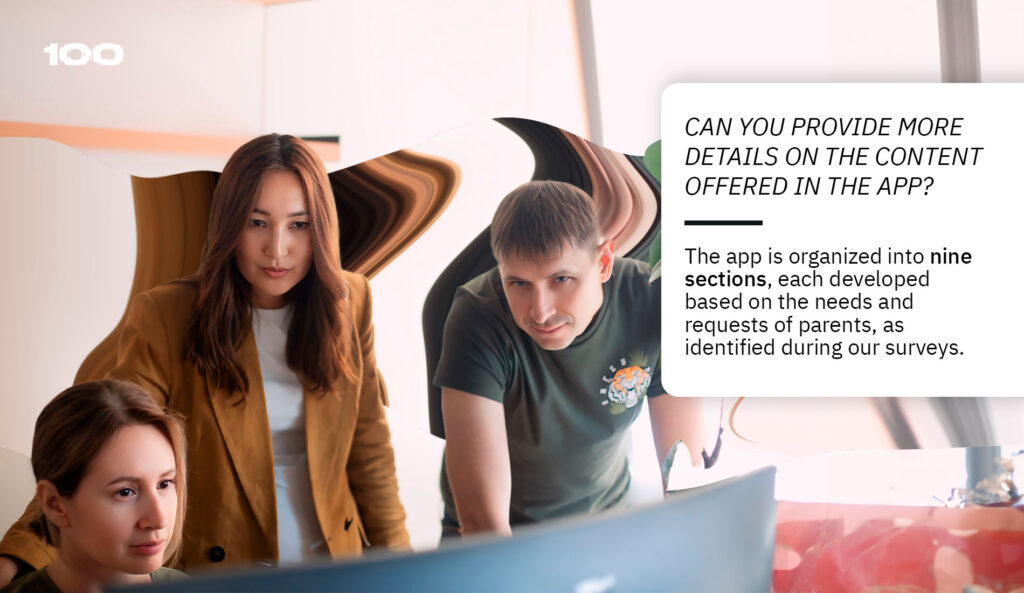
– Can you provide more details on the content offered in the app?
– The app is organized into nine sections, each developed based on the needs and requests of parents, as identified during our surveys. Initially, we focused on explaining medical diagnoses, but soon realized this information is relevant for all children, not just those with special needs.
We also offer a section with video lessons featuring expert contributors, which are published both in the app and on YouTube. During consultations with parents, we created a “Library” where users can download helpful books, print them out if needed, and use them at home.
Another feature is the "Events" section, which compiles information about forums, conferences, lectures, and other gatherings related to child development.
There’s also a “Games” section, where we provide video tutorials on developmental games parents can play with their children.
The "Services" section is designed to help parents learn about educational and medical facilities for children. And our "Forum" offers a space for parents to engage in discussions, share experiences, and even build friendships, helping each other through challenges.
We also place great importance on the "Rights" section, where we publish legal information for families of children with special needs, including details on the types of support they are entitled to and how to access it. Many parents are not fully aware of their legal rights, and we’re working to change that.
Learning from other families
– Do parents of children with special needs have unique concerns?
– Absolutely. Initially, we thought that our most popular section would be "Public Services," but it turns out parents were more interested in hearing the real-life experiences of other families—how they live, how they manage care, and what their kids do as they grow older. They wanted real stories, which led to the creation of our "Blogs" section, where parents can share their experiences. It’s become one of the most popular and highly visited parts of the app.
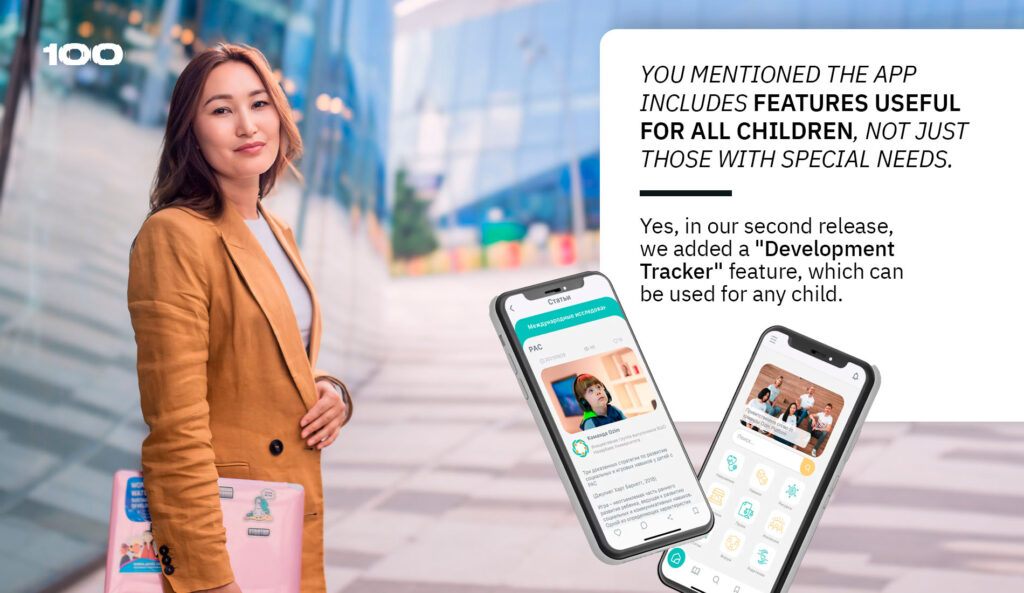
– You mentioned the app includes features useful for all children, not just those with special needs.
– Yes, in our second release, we added a "Development Tracker" feature, which can be used for any child. Parents can enter their child's details and complete regular assessments to identify potential developmental issues. Often, when a baby is born, doctors don’t find any immediate issues, and parents don’t feel the need to visit the doctor. However, problems can develop later on, and early detection can make all the difference.
Our app encourages a systematic approach, where parents of young children regularly fill out questionnaires to track their child's development. This is a highly useful tool that can flag any early warning signs, allowing parents to take action sooner.
Most importantly, parents need to know that the earlier they start addressing any developmental concerns, the greater the chance for successful treatment and rehabilitation.
The app also includes a rewards system where parents can earn points for reading articles and leaving comments. These points can then be exchanged for services or toys from our partners and sponsors.
A Growing User Base
– How many users does the app have today?
– We haven’t invested much in traditional advertising, yet the app has grown primarily through word of mouth. It was a pleasant surprise to see users from not just remote areas of Kazakhstan but also from neighboring countries like Russia, Kyrgyzstan, Uzbekistan, Belarus, Tajikistan, and even the UAE. As of now, we have around 5,000 active users, and this number continues to rise as more people discover and seek out the information we provide.
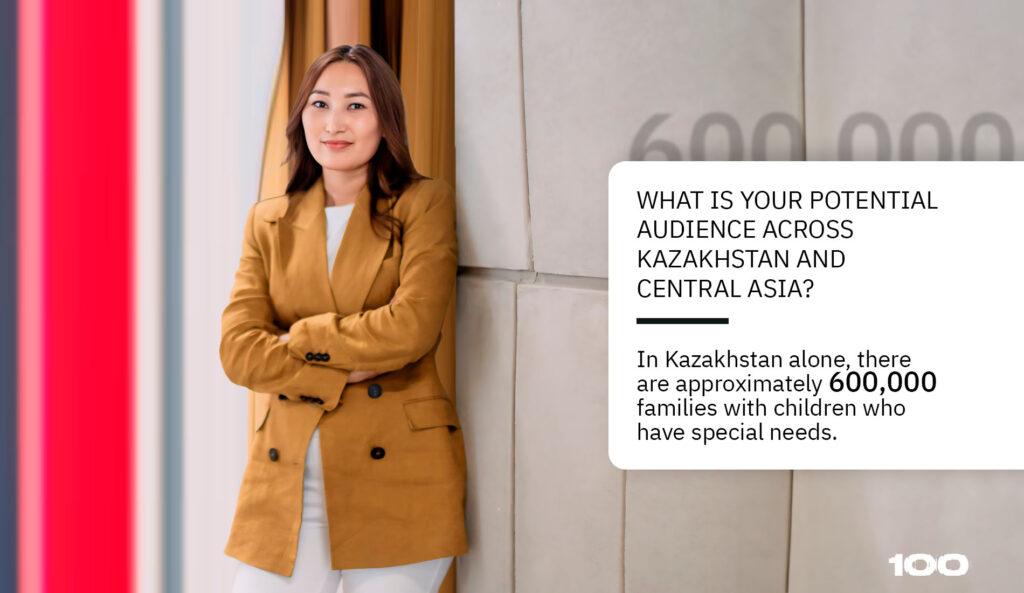
– What is your potential audience across Kazakhstan and Central Asia?
– In Kazakhstan alone, there are approximately 600,000 families with children who have special needs. If you extend that to Central Asia, the figure reaches around 5 million families. These numbers only reflect official disability cases, so the actual number is likely even higher.
– You’re doing essential work. Are you partnering with government agencies?
– Yes, we’ve recently been in discussions with the Ministry of Digital Development, Innovations, and Aerospace Industry of Kazakhstan, where we presented our project to government officials. The initial plan is to integrate Ozim Platform into the state’s digital service ecosystem. Ideally, parents will start receiving notifications about our app through the eGov Mobile platform.
– What is your current monetization model?
– Initially, we relied on partnerships. We would recommend trustworthy companies and brands, and they would pay us for these integrations. During an accelerator program, we tested a Freemium model, where the main content is free, but additional features—like the "Development Tracker"—are available through a subscription.
– Is your startup seeking investment?
– Like most startups, we could certainly benefit from investment, but right now, I’m taking a pause on active fundraising. I want to reassess our direction before moving forward. I recently visited the U.S. to study their support systems for families with special needs children and was impressed by the structure they have in place. Their medical and support frameworks are well-established, something we still lack in Kazakhstan. Rather than taking Ozim Platform to the U.S., my goal is to bring their models here, with the support of the government.
Our next step would be to create and implement similar algorithms within Kazakhstan. We estimate that the initial funding required to make this happen would be at least $200,000.
Our Mission: A Healthier Nation
– How would you define the mission of Ozim Platform?
– There’s a lot of talk about creating a healthier nation in Kazakhstan, and we believe it starts with early childhood. Our goal is to ensure that every child can benefit from the best that modern medicine and science have to offer.
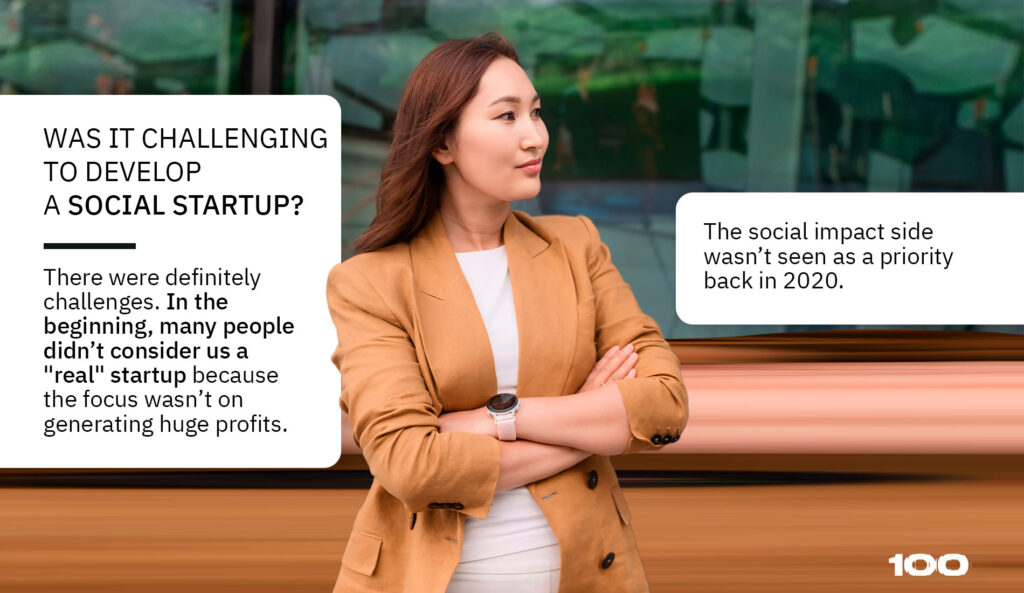
– Was it challenging to develop a social startup?
– There were definitely challenges. In the beginning, many people didn’t consider us a "real" startup because the focus wasn’t on generating huge profits. The social impact side wasn’t seen as a priority back in 2020. But today, in 2024, things have shifted. Almost every startup now aims to have a social impact, and we’ve seen the rise of impact investing and funds dedicated to this cause. What has been mainstream internationally is just beginning to gain momentum here in Kazakhstan. Fortunately, the perspective on Ozim Platform has changed for the better, and we’re seen in a much more favorable light.
– Where do you see Ozim Platform in five years?
– I envision Ozim Platform being fully integrated into the government service ecosystem—that’s our minimum goal. Beyond that, I see us evolving into a research-driven initiative with our own lab, where we can generate new insights that will significantly impact healthcare and education.


